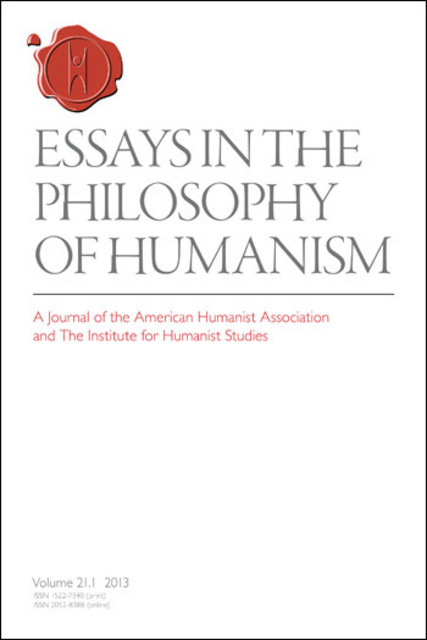BY WHAT AUTHORITY? ON WHAT GROUNDS DOES HUMANISM DISAVOW THE SUPERNATURAL?

Full description
The authority of humanism is emphatically not an authority based on intuition, spiritual awakening, personal revelation or epiphanies, scriptural witness of whatever faith, pseudo science, astrology, consensus, endorsements, testimony of enlightened gurus, swamis, pastors, priests, ayatollahs, Buddhist monks, or even justices of the Supreme Court of the United States. The central thesis of this essay is to identify the specific authority underlying the humanist claim which states that “Humanism is a progressive philosophy of life that, without supernaturalism, affirms our ability and responsibility to lead ethical lives of personal fulfillment that aspire to the greater good of humanity.” (Humanist Manifesto III, Washington, DC: American Humanist Association, 2003, italics added.) This essay addresses the question: By what authority do humanists make this claim? The answer is based on consideration of the impossibility of a-priori premises and assumptions except for mathematics and logic. Rather than a priori assumptions and premises, the authority underlying humanism is based on the legitimacy of the a-posteriori, in short, empirical and scientific processes and methodologies.
- typeImage
- created on
- file formatjpeg
- file size47 KB
- container titleEssays in the Philosophy of Humanism
- creatorJohn F. Crosby
- issue18.2
- publisherEquinox Publishing Ltd.
- publisher placeSheffield, United Kingdom
- rightsEquinox Publishing Ltd.
- doi
We use cookies to analyze our traffic. Please decide if you are willing to accept cookies from our website. You can change this setting anytime in Privacy Settings.
